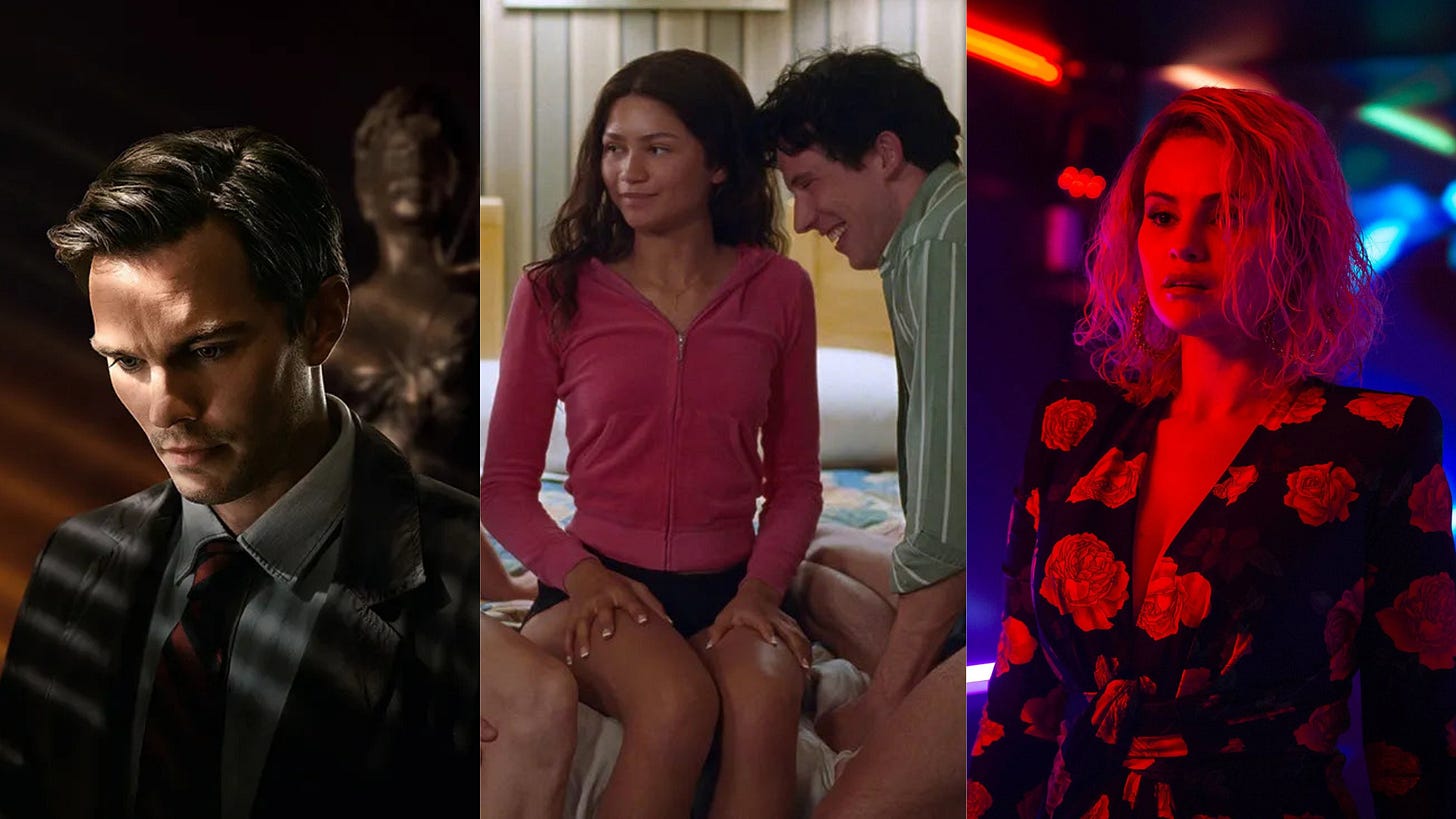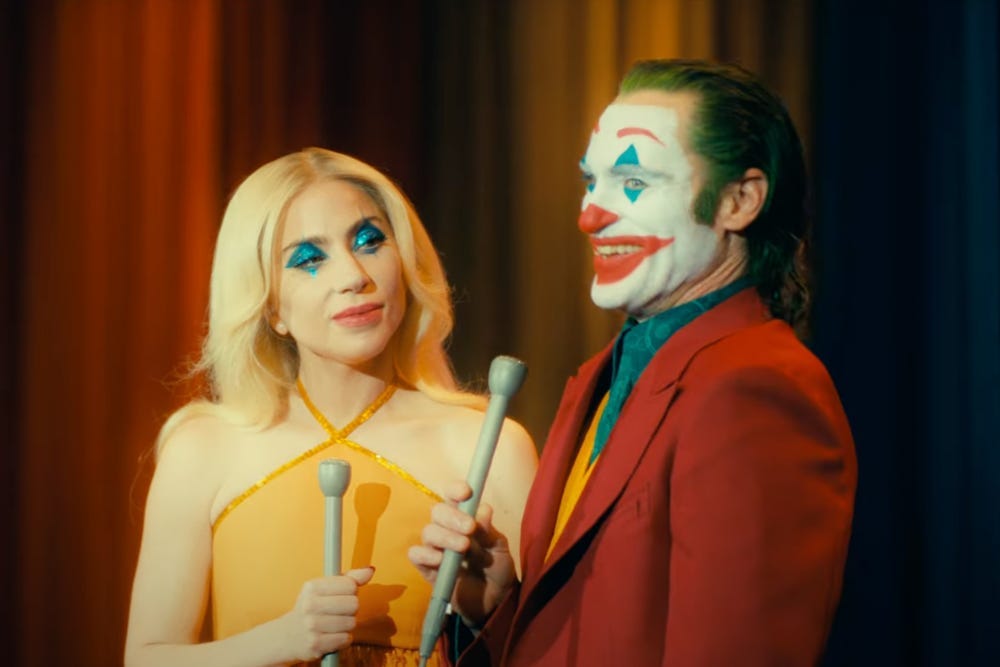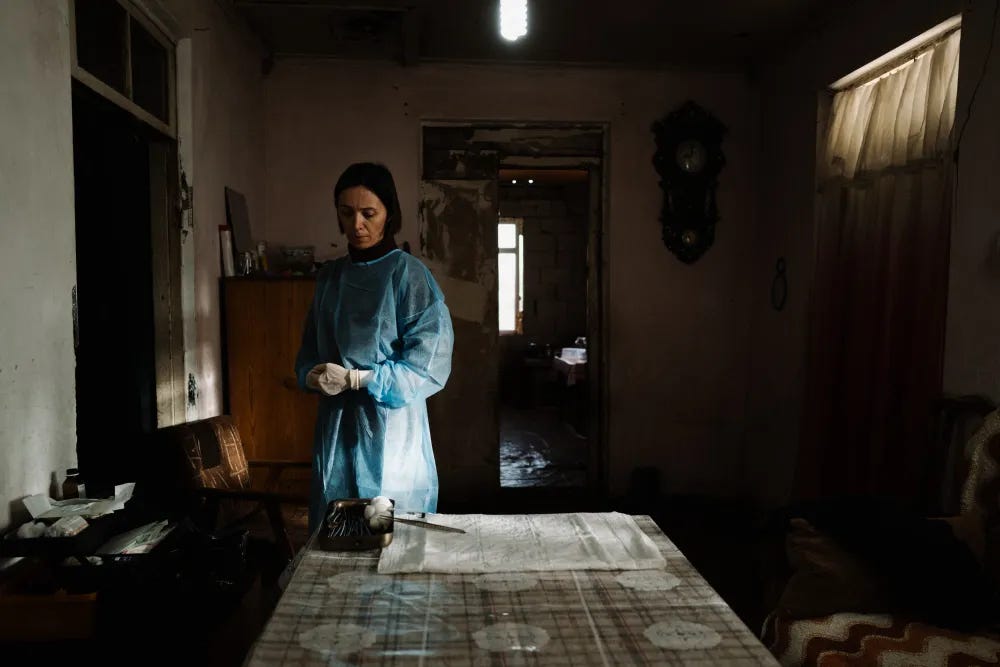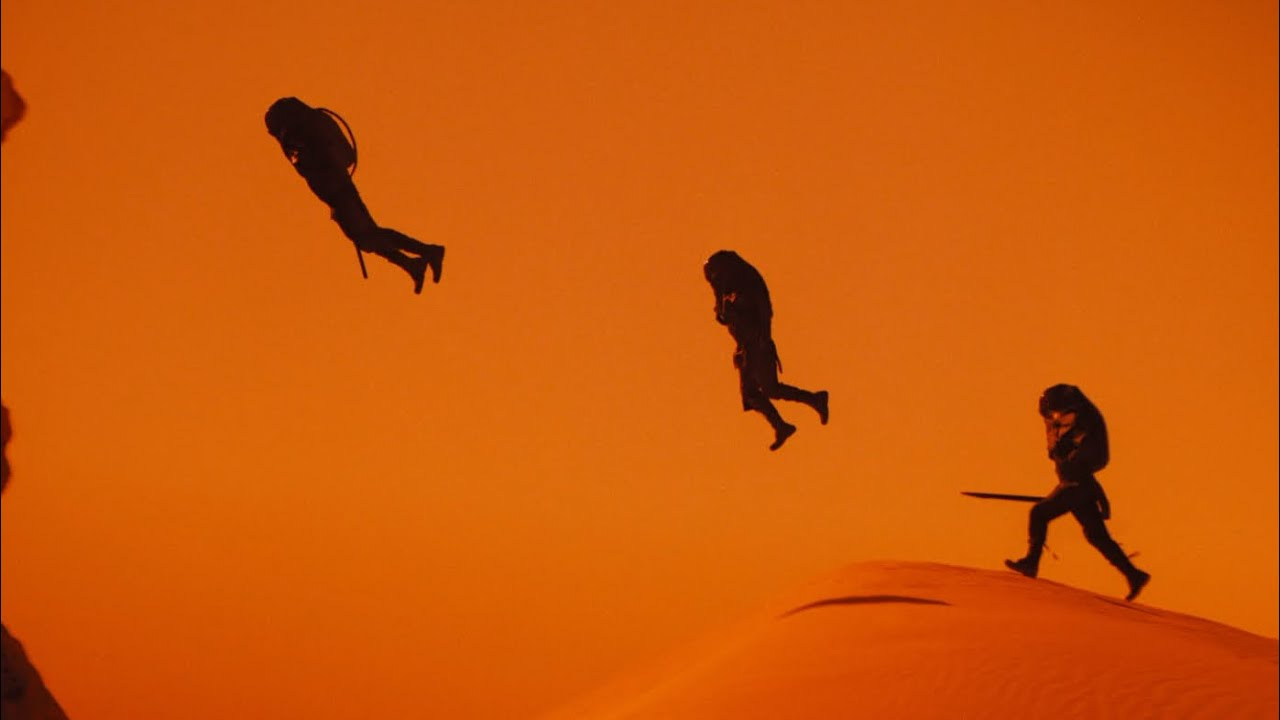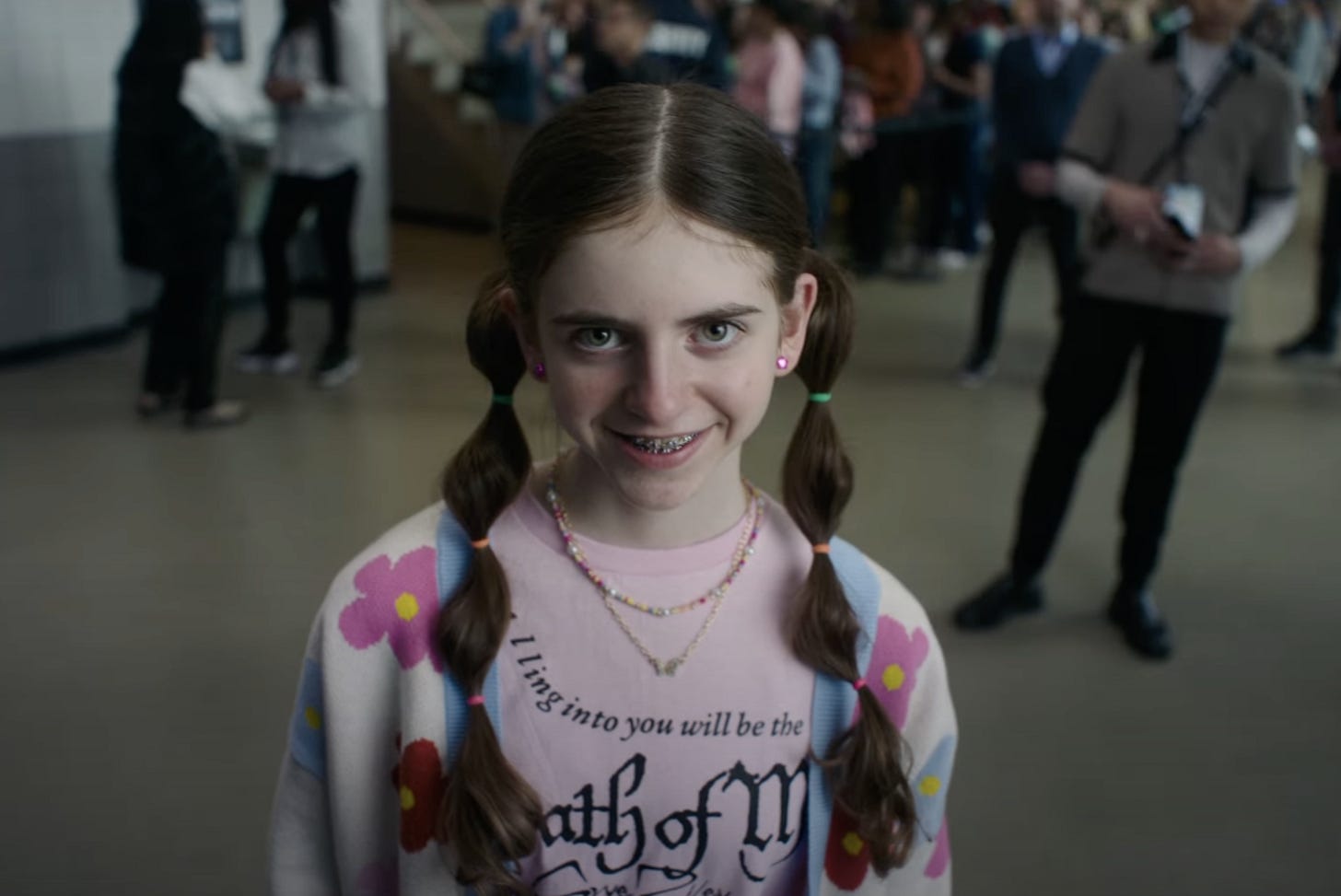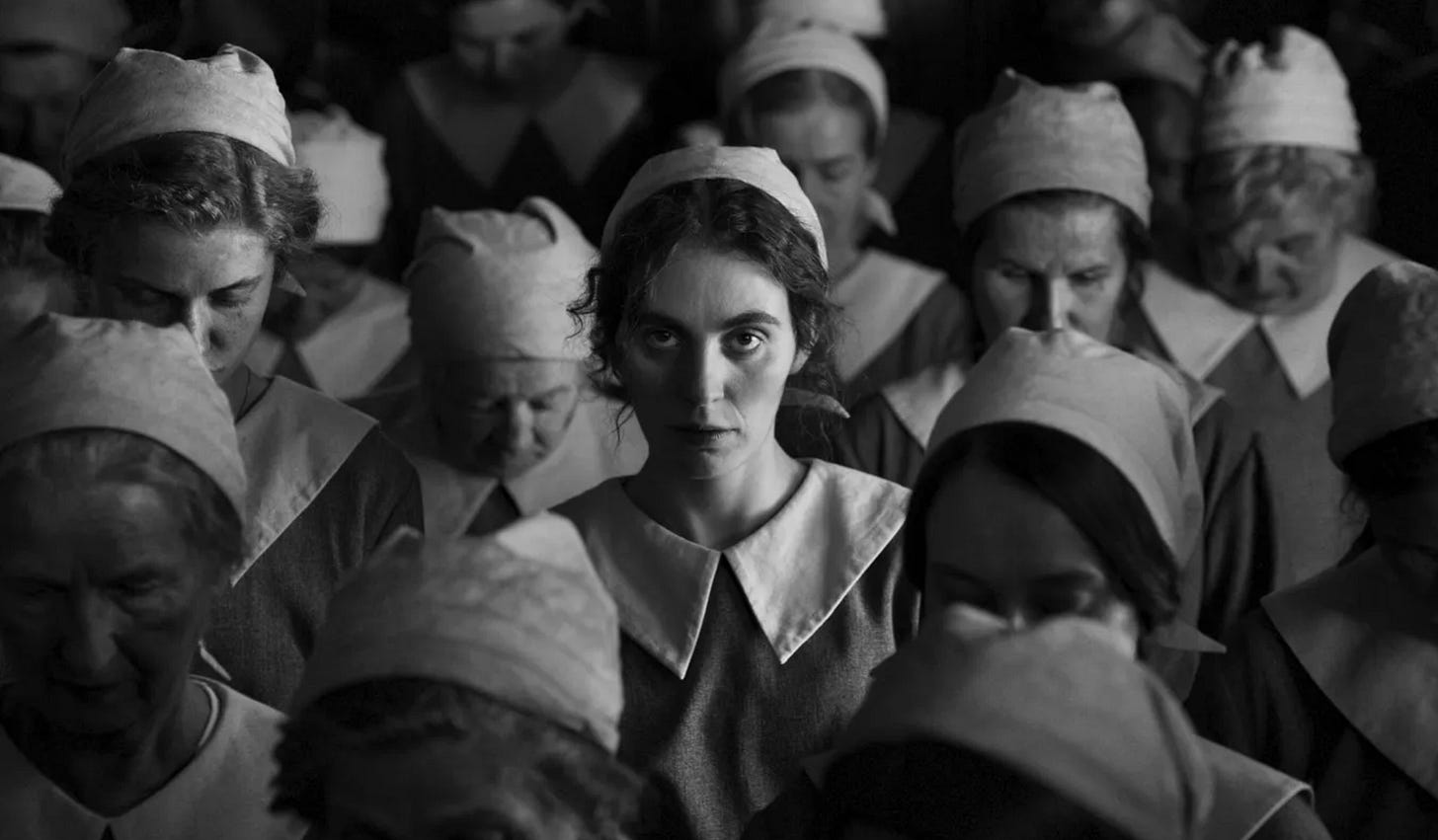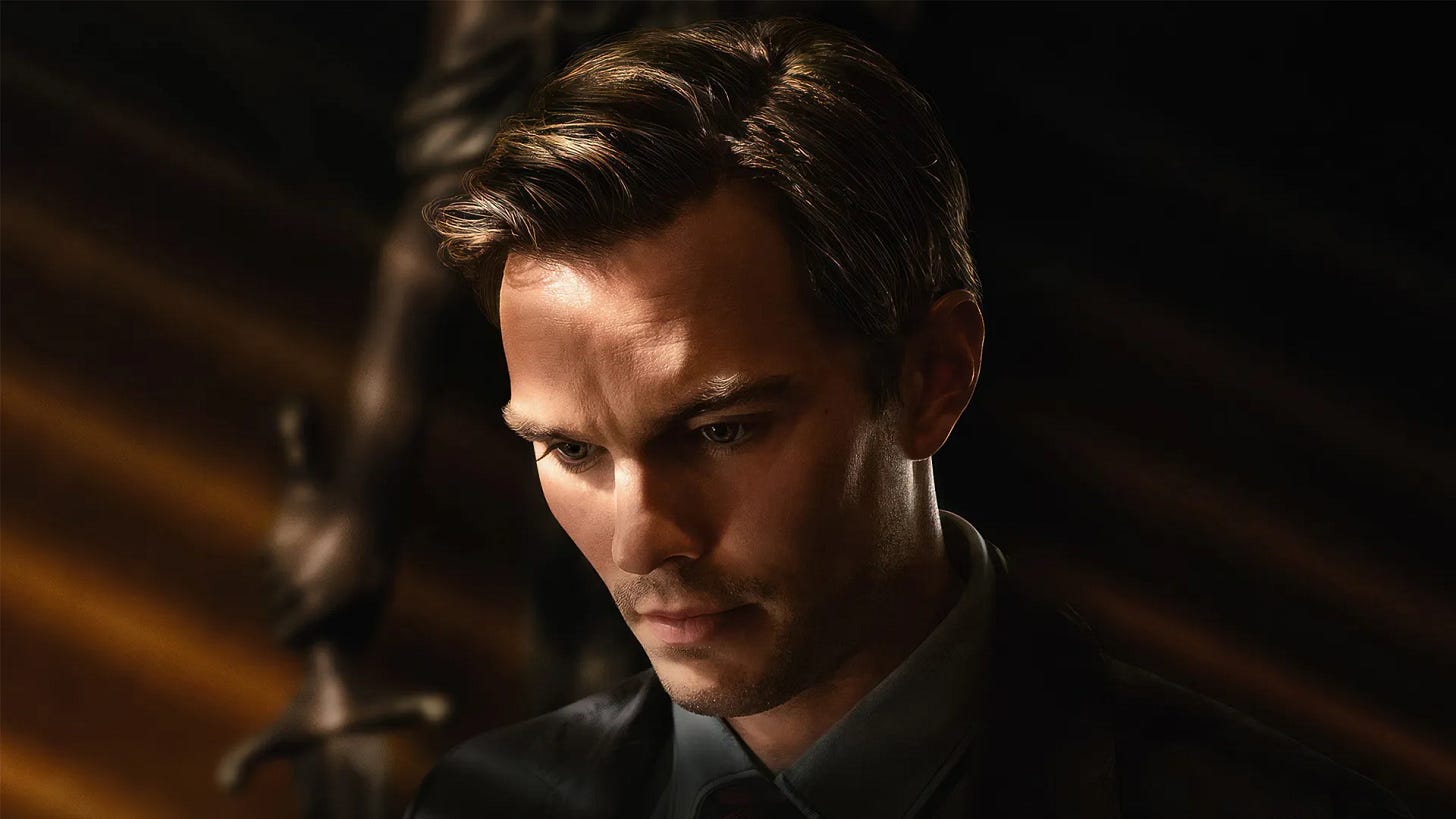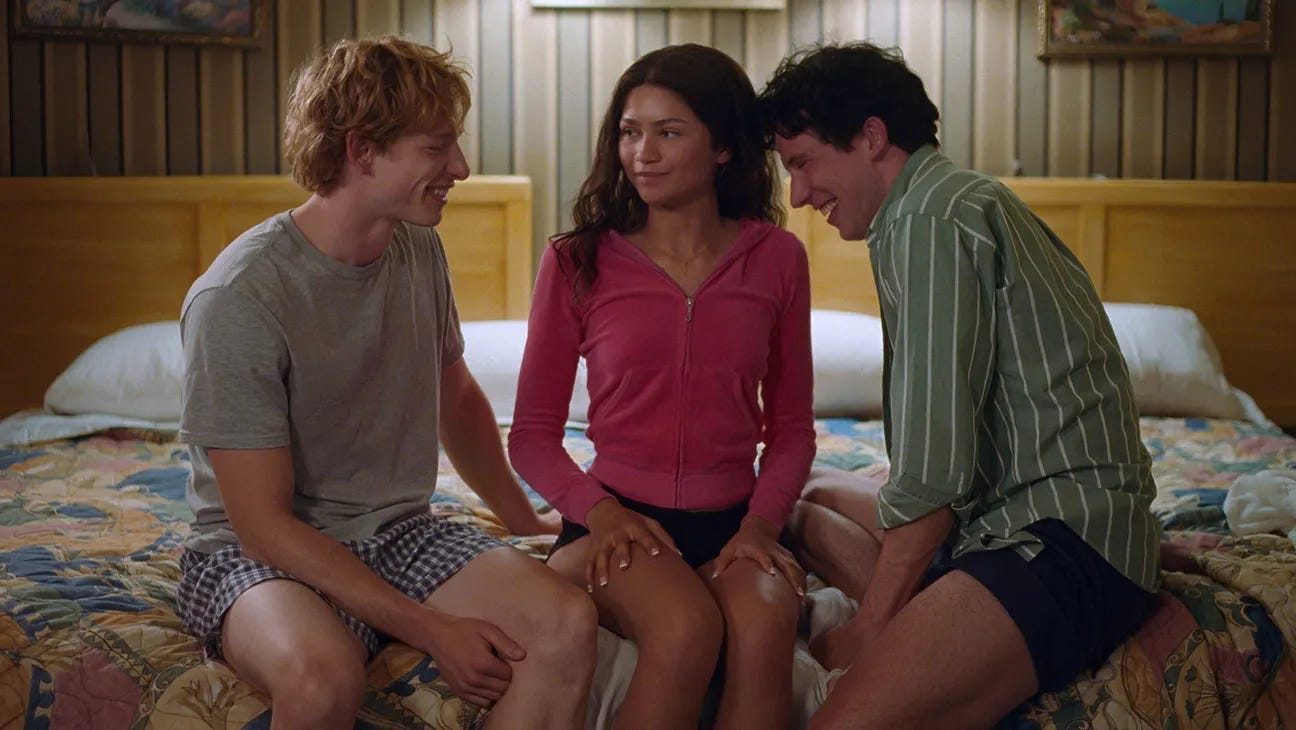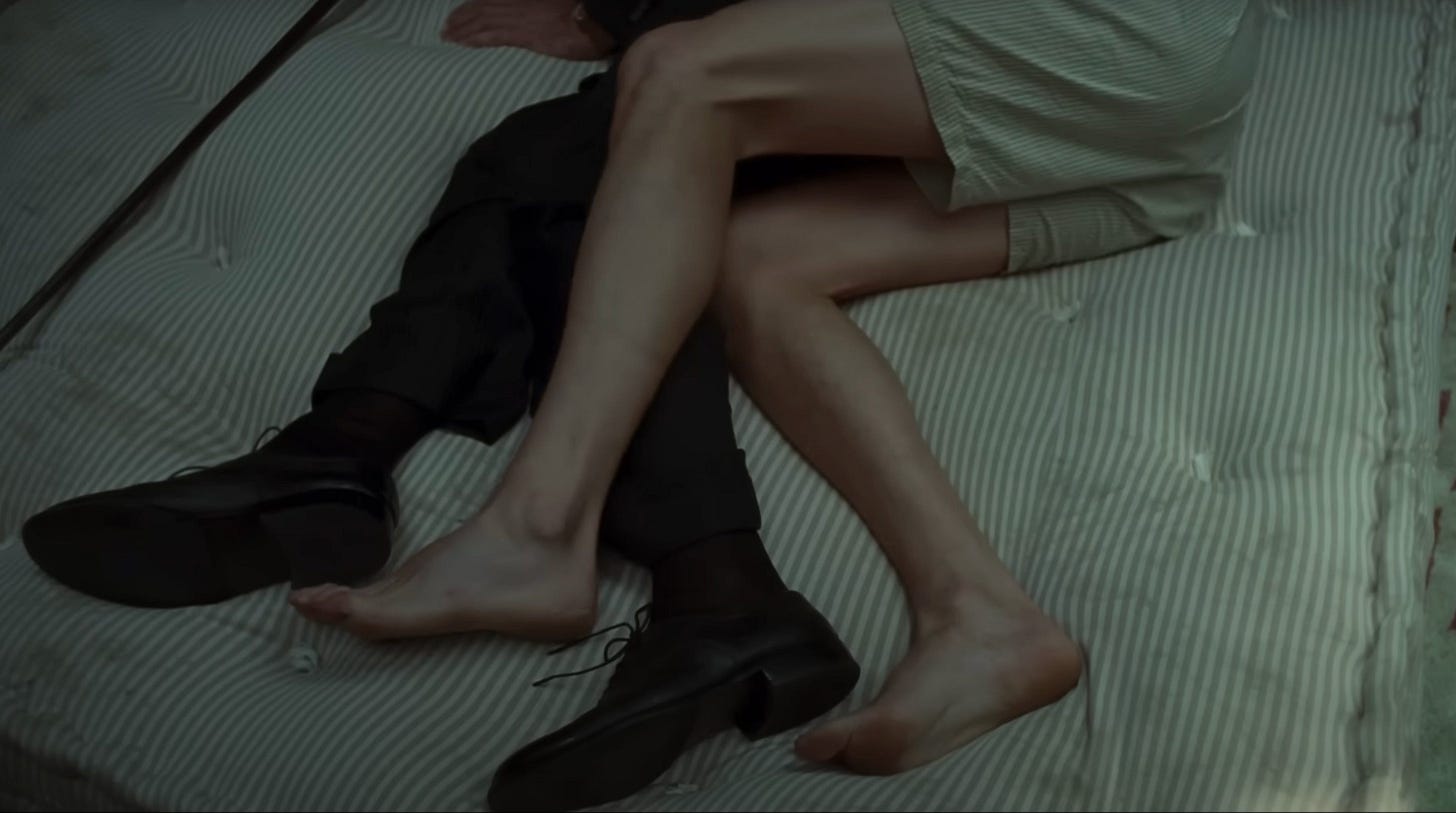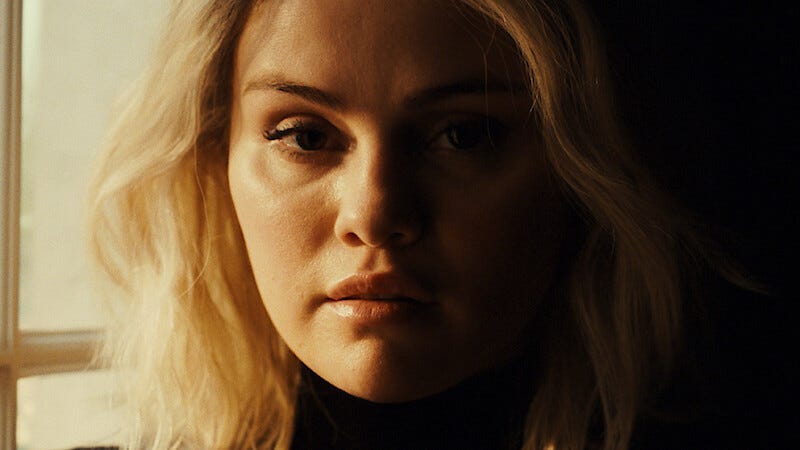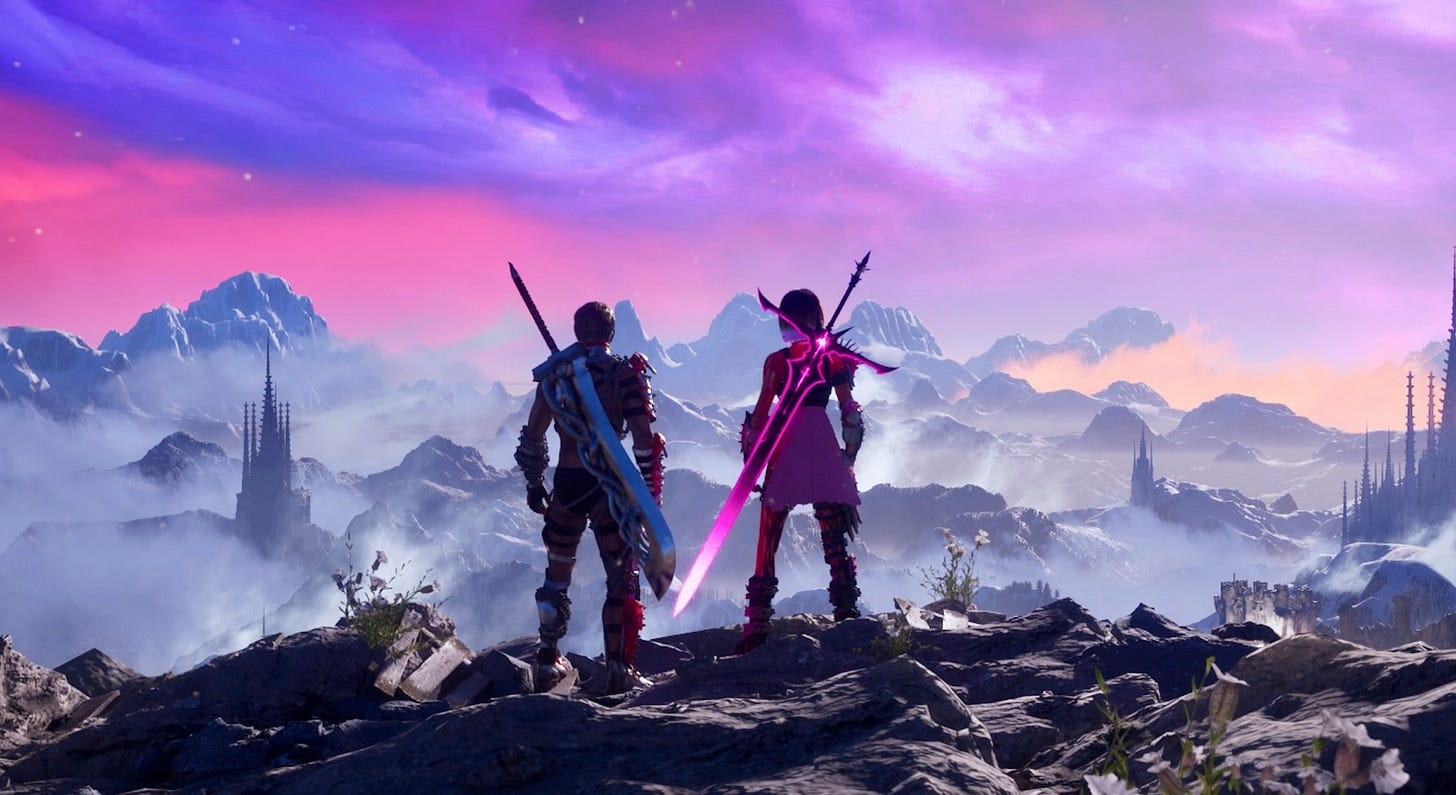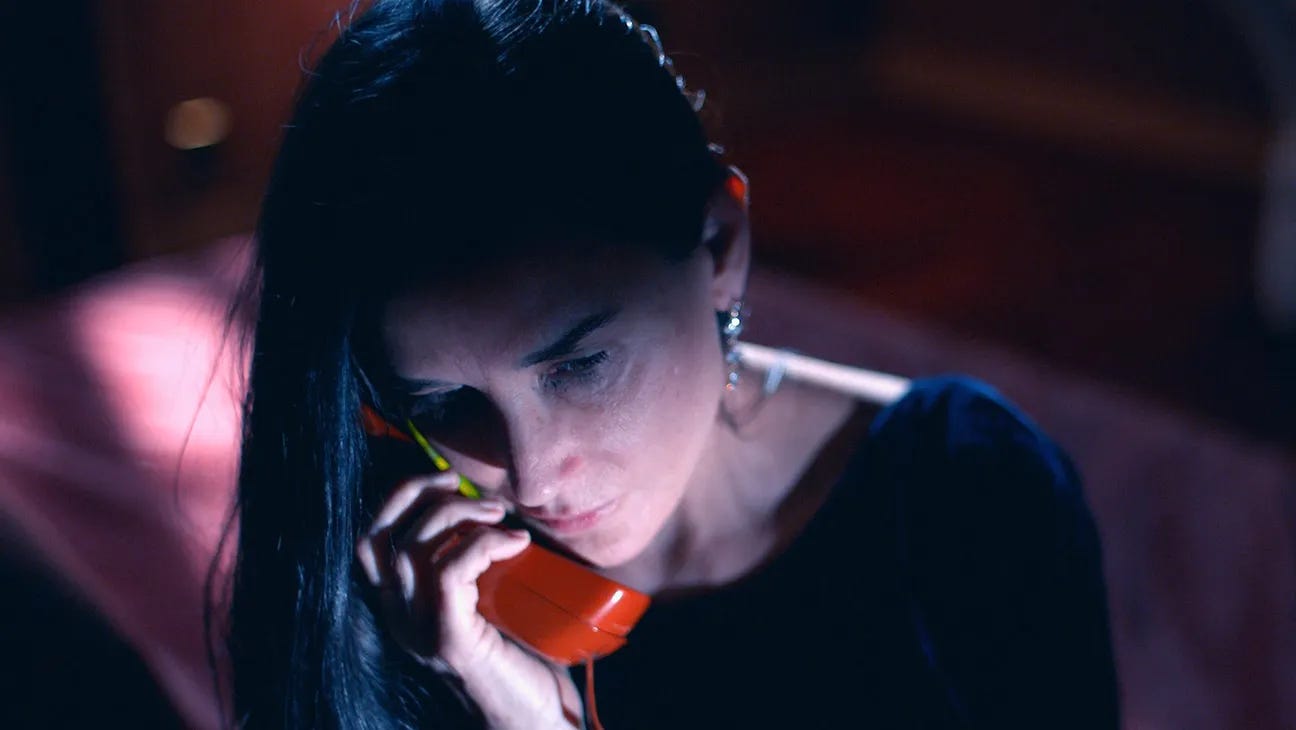Before we start getting into what I perceive to be the top ten best films of the year, it’s worth the reminder that these lists aren’t perfect. Coming to a sound evaluation would mean watching every single release of that year to ensure you’ve covered the best. According to IMDb, over eighteen thousand films were released in 2024—an impossible task for an individual to consume. Therefore all you’re left to work with are the films you happened to catch in that year among the the multiple distractions and commitments that occur in life. Inevitably, you may find yourself not including films that deserve their place in there just because you didn’t get a chance to see them. Or worse if you’re in the UK, you might suffer from the delayed release into the following year as those across the pond get their eyes on it earlier. Thankfully, you can bypass the delayed release dates if you manage to get yourself off to the top-tier film festivals or catch a preview screening in the capital. Albeit if these solutions are expensive.
And then we come to the complications of following different nations' release dates. In this year's best-of lists, it's jarring to come across The Zone of Interest, a film I got to witness back in May 2023 at the Cannes Film Festival. However, its UK cinematic release fell in February earlier this year. So then comes the question, should you include films following your own nation’s release schedule, or do you focus on those that had their world premiere in the year? These are just some of the complications of best-of-the-year lists. However, my chosen method is to go by the world premiere release and select the films I happen to catch before the end of the year is up. I’ve still yet to see Nicole Kidman and Harris Dickson's erotic thriller Babygirl. However, I can’t further delay a list due to not yet being able to see all of my most anticipated releases. Releasing this kind of list in mid-to-late January isn’t ideal as the yearly round-up fever will have passed its expiry.
Honorable Mention: Joker: Folie à Deux
Before I get into my top ten of the year, I want to give an honourable mention to this year’s most interesting film, Joker: Folie à Deux. It doesn’t quite deserve a place at number eleven by measurement of merit. There are better films that would chart higher. However, there’s a distinct difference between what constitutes the best works and those that are interesting.
Warner Brothers granted Todd Phillips and screenwriter Scott Silver the creative freedom to pull off a vision that could be seen as contrary to the expectations of those who were fans of the former instalment. Much like the story of the video game The Last of Us Part 2, Joker: Folie à Deux proceeded in a direction that addressed the events of the first tale, giving us an honest and realistic journey of the protagonist's fate as a consequence of their actions. Phillips and Silver told a story that resulted in one of the most daring sequels to come from American mainstream cinema.
It wasn’t just Joker: Folie à Deux’s story that made this work as ambitious as it is. Diving into the musical genre may have turned a considerable number of noses before giving the work a chance. However, the way in which they used existing songs from decades ago to convey the two characters ’ psyches and the progression of the plot was to my standards, storytelling that warrants the compliment of creative genius.
Read my review: Joker: Folie à Deux has the courage to be disliked
10: April
We kick off my top ten with a film I was asleep for most of the duration. Why? I can assure you I didn’t fall asleep because what I was witnessing was boring. Rather, I was suffering an agonising hangover as a result of taking my cousin for a drinking tour around London the day prior to a 9 am press screening. Although I was in no fit state to attend the screening, I was determined due to the reactions from Venice Film Festival that resulted in walkouts, labelling the work as a bleak and unsettling abortion drama that has echoes of Michael Haneke’s The Piano Teacher (2001). This selling point alone is enough to force me to battle against my own frailty.
Dea Kulumbegashvili’s April begins with the most startling, haunting and interesting imagery I’ve seen in the opening of a film. It’s not worth spoiling here, however, the intrigue continues as the graphic nature of childbirth is presented to us in pristine detail. From the first ten minutes, Kulumbegashvili introduces us to a work that is cold and unforgiving. Hideo Kojima’s Death Stranding (2019), and the cinema of Mike Leigh were reported to be inspirations for this piece, the perfect way to describe April’s imagery and style as you’re immersed deeper in this tale of hell.
9: Dune Part Two
I wasn’t particularly blown away by Dune (2021). Despite the impressive world-building, costume and sound design, the story failed to pull me into the state of immersion. Neither did Dune: Part Two’s story particularly grasp my full attention. However, sometimes when cinema presents itself as pure spectacle, a story attached with faults is suddenly forgiven if the action is powerful enough to trap you into hypnosis. The first opening sequence succeeds at capturing you into this desired state.
Dune: Part Two was far more ruthless, dark, and evil than Part One. The brutality of war is laid bare without judgment, just an honest portrayal without moral commentary from the filmmaker. The life of the individual is disposable as those who fail to present themselves as useful to the powerful are eliminated without hesitation. Austin Butler’s portrayal of the sinister Feyd-Rautha makes this reality of the world all the more disturbing. From the filmmaking right through to its themes, Dune: Part Two is a brutal experience from all angles.
8: Smile 2
Smile (2022) may have been a commercial success at the box office, however, its interesting concept didn’t get to live up to its potential due to weak, non-interesting characters, and narrative directions that we’ve seen too many times before in the genre. An $11,000,000 increase to the budget for its sequel and a moment of reflection for its director to up the ante delivered a work that was reminiscent of the wave of Blumhouse titles such as Insidious (2010), Sinister (2012), and The Conjuring (2013) that ruled commercial horror in the early 2010s.
Smile 2 dials up the horror to 100% with a much more interesting narrative, focused on a troubled pop star with a drug abuse history who must convince her team and her fans that she's not relapsing as she fights disturbing hallucinations from a demon determined to destroy her. The gore is more brutal and entertaining with scares that are highly effective and threatening, provoking a genuine reaction from you even though you can see it coming. Director, Parker Finn takes full advantage of his 2022 concept, compensating for the lack of what we would have liked to have seen initially. It may not be the start of a new wave of heavy punches in the commercial horror genre, but we can have confidence that good horror no longer only exists within the confines of arthouse in the 2020s.
Read my review: Smile 2 is commercial horror at its finest
7: The Girl with the Needle
This cold and harrowing Danish work from director Magnus von Horn was one of the standouts at Cannes Film Festival. Set in early twentieth-century Copenhagen, a young impoverished woman falls pregnant and is taken in by a helping hand who illegally buys and sells babies. However, the true nature of the business becomes apparent, leading to deeply dark storytelling inspired by true events. This may not have won any awards at the festival, however, Magnus von Horn’s direction ensures he’s a filmmaker whose work should be highly anticipated in the future. The Girl With the Needle delivers a satisfying dose of hopelessness.
6: Juror #2
The release of Clint Eastwood’s Juror #2 may be the most perplexing cinema rollout of 2024. With a limited release of less than fifty theatres in the US, little to no press and small marketing, it would appear that Warner Brothers wasn’t enthusiastic about promoting their product. However, this is one they should have steamrolled behind as the result is extraordinary. Eastwood’s releases in recent years have been hit-and-miss. Richard Jewell (2019) and Cry Macho (2021) weren’t works that reached the bar of high standards that we’ve seen from Eastwood’s best contributions to cinema sitting in the director's chair. Million Dollar Baby (2004) and Mystic River (2003) immediately spring to mind. Expectations weren’t necessarily high for Juror #2, but it’s the best work we’ve seen from Eastwood in years.
The plot centred around a citizen who thinks he might be the killer in a case that he’s a member of the jury for may not spark fresh originality in the history of cinema, but its dealt with an extreme care of detail by screenwriter Jonathan A. Abrams that locks you in for its duration. Juror #2 feels like a warm hit of nostalgia, reminiscent of an 80s/90s courtroom drama that would have left behind a legacy of success. Due to its flaccid release, Juror #2’s legacy may be one of a forgotten gem. This is a work that demands more justice (pardon the pun). It’s so good that you can even forgive its unnecessary ending. We can only hope the awards season lifts it a few inches higher from the grave.
5: Challengers
Luca Guadagnino’s electrifying love triangle tennis drama was 2024’s most pleasant surprise. Challengers was much more than what it set out to be on the tin from its trailer and marketing. It’s combination of hotshot stars and top-level filmmaking produces a formula that stimulates both the average movie-goer and the serious cinephiles.
Justin Kuritzkes’ spellbinding screenplay is as intellectual as it is sexy with its smart mirroring of the manipulative games these sportsmen play with each other being as entertaining as the one they play professionally on the court. Challengers shows there’s much more to tennis than a racket hitting a ball. The sport is reflective of life with its harsh and honest portrayal of the brutality of competition. As the golden girl, Tashi (Zendaya) says: “tennis is a relationship.” The intriguing narrative is enhanced further in its structure as we’re thrust back and forth from the present into the past over a scattered timeline, mimicking the movement of sport. As well as Trent Reznor & Atticus Ross’s brilliant electronic score that satisfies the auditory senses, the punchy and intense sound design complemented by the slick cinematography and captivating editing, this harmony of talent executes cinema at a serious standard. A work that shouldn’t be missed.
Read my review: Challengers is top-level filmmaking
4: Queer
The outstanding releases of 2024 have been few and far between it's fair to say. The films competing against each other in the awards season this year don’t seem to have much of a battle on their hands. Yet that isn’t to say we haven’t been spoilt rotten in some circumstances. A few months after the release of Challengers, we got to cast our eyes on another stellar work from the filmmaking team, this time an adaptation of the William S. Burroughs novel, Queer. However, it’s nothing like Challengers. The team rolled back from the mainstream and dove into art-house territory as they demonstrated once again that their contribution to cinema is worth your time.
We’re treated with some fine experimental filmmaking alongside performances from Daniel Craig and Lesley Manville as we’ve never seen them before. Guadagnino and his team do a superb job of bringing the themes of Burroughs’ novel to life as the sadness and pain of the lonely life of a gay man bleeds from the screen into your soul. Like his 2018 adaptation of Dario Argento’s Suspiria (1977), Guadagnino works strongly with the themes of the original work and allows plot events and characters to deliver their own originality. It’s since been revealed that Guadagnino will be delivering a brand new adaptation of the Brett Easton Ellis novel, American Psycho, starring Austin Butler as Patrick Bateman. If Queer is anything to go by, Guadagnino may prove himself to be the contemporary master of filmic adaptations as he tackles one of the most disturbing examples of popular literature.
Read my review: Daniel Craig brings the homosexual nightmare alive in Queer
3: Emilia Pérez
Jacques Audiard’s Emilia Pérez sets out a concept so bizarre that you go in with hesitation yet also a sense of intrigue. Once you settle into the experience, you’re pulled under its spell, fully appreciating that sometimes all that truly matters is the execution. Emilia Pérez leads the Golden Globes nominations. I have no doubt it will replicate the same presence at the Oscars. From my observations, it's a big contender to bag the prize of Best Picture.
A musical centred around an infamous cartel boss who hires a successful lawyer to help achieve his lifelong dream of transitioning into a woman may not pull in a mass audience, but nevertheless, it’s an impressive piece of cinema you should at least give a try.
Read my review: Emilia Pérez reassures that cinema has the power to make just about any concept work
2: Eat the Night
French director duo Caroline Poggi and Johnathan Vinel prove themselves to be among the most exciting filmmakers on the scene with their devastating and beautiful ultramodern work Eat The Night. The filmmaking on display feels incredibly fresh as if we’re peering into the future. We jump between crystal-clear digital cinematography as we follow the lives of the characters in reality to then being thrown into the world of Darknoon, an online video game similar to World of Warcraft. The creation of this artificial world is extremely impressive. The detail dedicated to building this alternative reality for these troubled characters to escape to is admirable. You can’t help but be taken back in awe at the graphics of this game. It’s so good you’d believe it was a game that was already in existence.
Outside of the game exists a harsh reality for siblings Pablo and Appoline, as their bond held strongly by their playing experience starts to break down once it’s announced that the Darknoon server is set to be shut down permanently. Whilst the countdown to elimination begins, Pablo falls in love with a supermarket worker called Night who quits his job to assist him in dealing drugs. However, when a competing gang start a war over territory, the boys’ fairytale of love is destined for tragedy.
With a vision this slick and transportative, those who argue that capturing visual storytelling in digital is a betrayal of the art form may succumb to falling for Poggi and Vinel’s meritorious abilities if they give it a chance. The future of cinema looks incredibly exciting from here.
1: The Substance
Not many audacious works like this come along frequently, the first since Julia Ducournau’s delightfully outrageous Palme d’Or winning film Titane (2021). Arguably, The Substance turns up the dial of madness a notch higher resisting the need to take its foot off the gas pedal as Ducournau did in Titane’s pacing. Director, Coralie Fargeat doesn’t give you a break with this body horror masterpiece. Nor should you have one. That’s one of the great things about this work, It never stops. There’s no boredom to be had in its nearly 2-and-a-half-hour running time that goes by in a flash. Once it starts, you’re strapped in for the full ride, forgetting the existence of the world outside of the one you’re immersed in. That’s the experience that great cinema should deliver. And Fargeat is a master at it.
I left my Cannes screening completely speechless at what I witnessed. A state of elation and ecstasy. The Substance is one of those films that takes the edges of what you think is possible in its journey and penetrates the imaginative boundaries you had of cinema, leaving you with your jaw descending onto the floor at the fearless, maddening state of creativity. A work which produces that reaction alone rightfully deserves its place as best of the year.
Read my review: The Substance is 2024's cinematic wet dream


